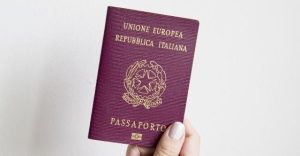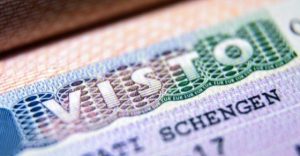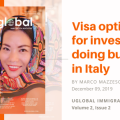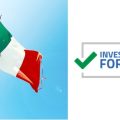Visa options for investors and entrepreneurs in Italy
Jun 16, 2020
This article is written by Marco Mazzeschi, published on Uglobal Immigration Magazine, Volume 1, Issue 2.
Full text available on Uglobal website.
https://www.uglobal.com/
In addition of being the third largest economy in Europe and the eighth in the world, Italy is a member state of the European Union, a single market with no borders and the home of about 500 million people. Italy is the second manufacturer in the EU after Germany and is one of the top tourism destinations in the world. About 33 percent of tourists worldwide visit Europe each year and 60 million foreigners visited Italy in 2017. In 2008, Italy went through a recession period but starting from 2016 the economy has been picking up and during 2018 exports and business investments are increasingly driving the recovery, according to OECD. Investment is expected to pick-up, supported by favorable financing conditions and tax incentives, according to the EU Commission.
HOT SECTORS FOR INVESTORS
Foreign investors have business opportunities in sectors such as telecommunications equipment and services, renewable energy, travel and tourism, life sciences, safety and security, airport and ground equipment. Sectors that are expected to have a high-growth potential are fashion, home furnishings, capital goods, aerospace, robotics, pharmaceutical, and biotech. Italy’s changing demographics and lifestyle (the country’s birth-rate is one of the lowest in the world, 22 percent of its population is over 65 and only 13.7 percent is younger than 14) also create opportunities. ECommerce and ancillary services are growing but remain relatively less developed with respect to northern EU countries and therefore is expected to grow substantially in the next few years. Investments that could substantially benefit the Italian economy, tax incentives and other benefits are available both by the government and by different regions.
INVESTING IN REAL ESTATE
The market is also expected to grow in 2018. Milan proves to be the Italian market with the most liquidity, with 4.2 billion euro invested in 2017, more than 40 percent higher than the 2016 volume. The reduced amount of real estate opportunities in the Milan market has prompted investors to move toward other markets, in particular in Rome where significant growth is expected in 2018. Among asset classes, 2017 was a record-breaking year for sectors once considered niche-markets such as hotels and logistics, according to CBRE Research. The purchase of the real estate, from a legal standpoint, is very safe in Italy. Notary Public, a government-appointed officer who must execute all real estate transactions, must carry out due diligence on the property to make sure that the seller has the full title on the property, the property is free from mortgages, liens or other burdens, and it is compliant with building and safety regulations. If you buy a property under construction, the builder – until closing is finalized – must provide a bank or insurance guarantee equal to the price paid. The buyer is therefore protected against the builder bankruptcy or failure to complete the project. The seller is liable for major defects of the property until 10 years after the closing. Any sensitive information about the property is accessible to any third party because that is listed at the Land Registry (Conservatoria dei Pubblici Registri Immobiliari). When the seller is a company, detailed information, such as registered capital, shareholders, directors, statutory auditors, and yearly accounts, can be easily obtained – also in English – from the Companies Register (Registro Imprese). The Notary Public is allowed to receive funds and keep it in deposit until the transaction is finalized and this is a further guarantee for the buyer. Anti-money laundering regulations (AML) are strictly applied in the EU. No cash payments are allowed and any funds remitted from outside Italy should be officially documented by the sender. Do not be surprised to be asked detailed information about your business and even personal status. In fact, banks and professionals involved in the transaction are required by AML to carry out due diligence on the buyer, to verify that any funds remitted originate from a lawful activity. The same will apply for opening a bank account.
Related: Buying a house in Italy
FAVORABLE FLAT-TAX REGIME FOR NEW RESIDENTS
Investors can also take advantage of the new flat-tax regime for new residents. In fact, individuals transferring their tax residency to Italy can take advantage of a substitute tax regime on their foreign income. Regardless of its amount, foreign income will be subject to a yearly flat tax of 100,000 euros. Close family members can also benefit from beneficial tax measures: a flat tax of just 25,000 euros — instead of 100,000 euros – will be applied to their foreign income. Opting for the new regime guarantees full exemption from reporting requirements with respect to financial and non-financial assets abroad and from succession duties on assets outside Italy. To qualify for the option the applicant must not have been a resident in Italy for at least nine tax years during the previous 10 years.
THE NEW INVESTORS’ VISA
Italy has introduced a specific visa for investors seeking to enter Italy to engage in capital investments that benefit the Italian economy. Before the introduction of the investor visa, the only options for those who wanted to live in Italy without working, was the so called “visto di residenza elettiva” (ERV), a kind of visa originally thought for those who wanted to retire in Italy. ERV requires the applicant to show a minimum passive income, not derived from work or salary, of at least 31,000 euros per year and to have a suitable accommodation. It is increasingly difficult to obtain the ERV, which is mistakenly considered a kind of investment visa and many applicants are driven to believe that the purchase of a property guarantees, per se, the issuance of the visa. In reality, consulates focus their scrutiny on the ability of the applicants to prove a stable and substantial income not deriving from work sources and they expect an income much higher than the 31,000 euros set forth by the law. Applicants are required to submit tax returns, certified bank statements and they must confirm their intention to live permanently in the country without working.
The Investors’ Visa can be obtained by: purchasing 2 million euro in Italian government bonds (to be kept for a period of at least two years); or investing 500,000 euros euro in a company or 250,000 euros in a “innovative start-up”; or donating 1 million euros in philanthropic projects of public interest. Applications for the investor visa are filed online with the Ministry of Economic Development (MoED). After obtaining the MoED’s clearance, the applicant can obtain the visa from the Italian Consulate with a fast-track procedure. Within three months from the date of entry, the applicant must provide documented evidence of the investment proposed in the application. The investors visa holder shall receive a two-year valid investors’ residence permit (permesso di soggiorno “per investitori”), renewable for an additional three years after the approval from the MoED’s Committee. After five years of legal stay and provided the eligibility requirements are met, a foreign national can apply for permanent residency i.e. EC residence permit for long term residents, valid indefinitely. Family members of investors visa/permit holders are eligible for a residence permit for family reasons.
Related: Investor Visa for Italy
OTHER OPTIONS:
CREATE YOUR OWN START-UP COMPANY
An interesting option for those who want to relocate to Italy and start a business, is the “start-up visa,” which is aimed to non-EU nationals intending to set up an innovative start-up business. Companies must meet the conditions set forth by law 221/2012 or join an already established start-up company. The applicant must: prove the availability of at least 50,000 euros to be used for the sole purpose of establishing and operating the start-up; or, at least 100,000 euros for joining an existing start-up, and submit a detailed business plan. The key for obtaining the clearance from the MoED is being able to submit an “innovative” project: the MoED’s Committee will, in fact, focus its exam on the viability and novelty of the project, while the availability of funds is only a technical requirement that confirms the applicant’s ability to start the proposed activity. Family members are eligible to obtain a family residence permit.
Related: Italy Startup Visa
INVEST IN AN EXISTING START-UP
Applicants intending to join an existing start-up can obtain a work visa but must make sure that the investment is for at least 100,000 euros, that they will be appointed as board chairman or CEO, and that they also will work as an employee for the company. The law gives the possibility to file the application through a certified incubator i.e. an Italian company having specific features and that can host start-ups and help them by providing technical, legal and management support, as well as equipment and a space where the start-ups can develop their business. These visas are subject to availability of quotas issued yearly by the Government.
Related: Italy Startup Visa
START YOUR OWN BUSINESS
If you do not qualify for a start-up visa but you still intend to carry out some activities in Italy, you can register an ordinary company. With few exceptions, Italy allows foreigners to register a new company entirely owned by foreign individuals or companies. Also, there is no requirement to appoint an Italian citizen as one of the directors and/or hire local workers. A self-employee visa as a company’s owner or director can however be obtained only when a company has been active for at least 3 years. A newly established company therefore can’t be used for the purpose of obtaining a work visa, but if the company is adequately funded, it can immediately hire non-EU workers, without the need of hiring a certain number of local workers. This option is doable only for highly skilled workers who have at least a 3-year University diploma, which need to be validated by the Italian Consulate. This visa is not subject to any quota limitation. The law does not set any limits for using newly established companies for sponsoring work visas (such as minimum capital or turn-over, number of local workers) but it leaves an ample discretion to the Immigration Office to assess the company’s financial ability to carry out the business and bear all charges relevant to the workers. Accordingly, it is always advisable to start a new business with adequate and substantial funds, in addition to the minimum 10,000 euro capital that is required to register a limited liability company (S.r.l.) and to be able to prove to have the financial means for carrying out the planned business.
Related: Start a new business and obtain work and residence permit
SELF-EMPLOYEE VISAS
This visa can be applied for by individuals who are freelancers and do not have a company that can hire them or sponsor their work permit. The issuance of the visa is subject to Italy’s quota-system, fixed annually and not all self-employment categories are available each year. It is difficult, despite the availability of quotas, to obtain a self-employment work visa. Most consulates have a very restrictive policy and are very cautious before issuing a visa to an applicant who cannot guarantee to have a stable occupation and substantial salary in the country. Requirements are: evidence of suitable accommodation; proof of financial resources exceeding 8,500 euros (but consulates expect the applicant to prove the ability to have a higher income); pass a police clearance; get clearances issued by the Chamber of Commerce or professional body which governs the activity the applicant intends to carry out. Despite obtaining the necessary clearances in Italy, many applications are rejected by consulates on various grounds.
Related: Italy Self-Employment Visa
CAN YOU ACQUIRE ITALIAN CITIZENSHIP?
Italy does not offer a specific citizenship by investment program. You can be entitled to citizenship if you have ancestors who were Italian citizens or by marrying an Italian citizen. If you have invested in Italy and obtained residency, you can apply for citizenship after ten years (four years for EU citizens) provided that you have maintained a valid registration with the City Hall and you prove to have paid taxes at least three years before filing the application.
This article is published on Uglobal Immigration Magazine, Volume 1, Issue 2. Full text available on Uglobal website. If you have any questions, please contact us by filling an online form or drop an email to info@mazzeschi.it.
Attorney at law.
One of the leading corporate immigration lawyers in Italy. Admitted to the Milan Bar Association (1988) and to the Taipei Bar Association (2016), a member of the American Immigration Lawyers Association (AILA) and an accredited partner of Invest in Tuscany.


























